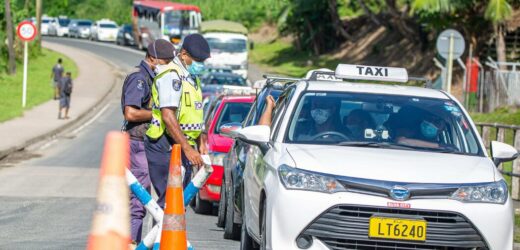The Pacific archipelago nation of Fiji has asked Australia to deploy a medical support team to its capital, Suva, as it battles one of the fastest-growing coronavirus outbreaks in the region.
James Fong, Fiji’s health secretary, said at a news conference this week, “The Australians will provide for contingency beyond our current surge preparations.”
“We have extra space to deploy for field hospitals, and we have extra critical-care capacity we have yet to activate,” he added. “They come to help us plan beyond that.”
Australia has not publicly responded to the request, but Fiji’s needs are acute: After months of virtually no community transmission, the country has been pummeled over the past eight weeks by the highly contagious coronavirus variant known as Delta.
A single infection in an isolation center has fueled a major outbreak after infected people attended funerals, weddings and kava ceremonies, at which people customarily drink from the same bowl, that turned into superspreader events.
Fiji, with a population of about 900,000, now has more than 1,000 known active cases, with five people having died from the virus, according to a New York Times database. The authorities on Friday reported 91 new cases.
About 26 percent of Fijians have received at least one dose of an AstraZeneca vaccine, with doses acquired through the Covax global vaccine initiative or donated by Australia and New Zealand.
The government in Fiji has resisted calls for a 28-day national lockdown, citing concerns about the economic effects, and instead imposed targeted local restrictions, including locking down hospitals, closing Parliament and restricting travel between urban areas.
In a televised address last week, Prime Minister Frank Bainimarama said that the risks of a lockdown were too great. “People’s jobs may never return,” he said. “We’d suffer structural unemployment through the permanent loss of industries and I cannot allow that to happen, and I will not.”
Already, some Fijians face shortages of food and medical supplies, leading to anti-lockdown protests in the region of Nadi. Humanitarian workers from Save The Children Fiji said that children were going hungry or surviving on canned fish and biscuits because their parents were unable to work.
“Many families have told us they are exhausted,” Shairana Ali, the organization’s director, said in a statement. “Many parents are going hungry to stretch out whatever little food they have to be able to feed their children.”
Source: Read Full Article


